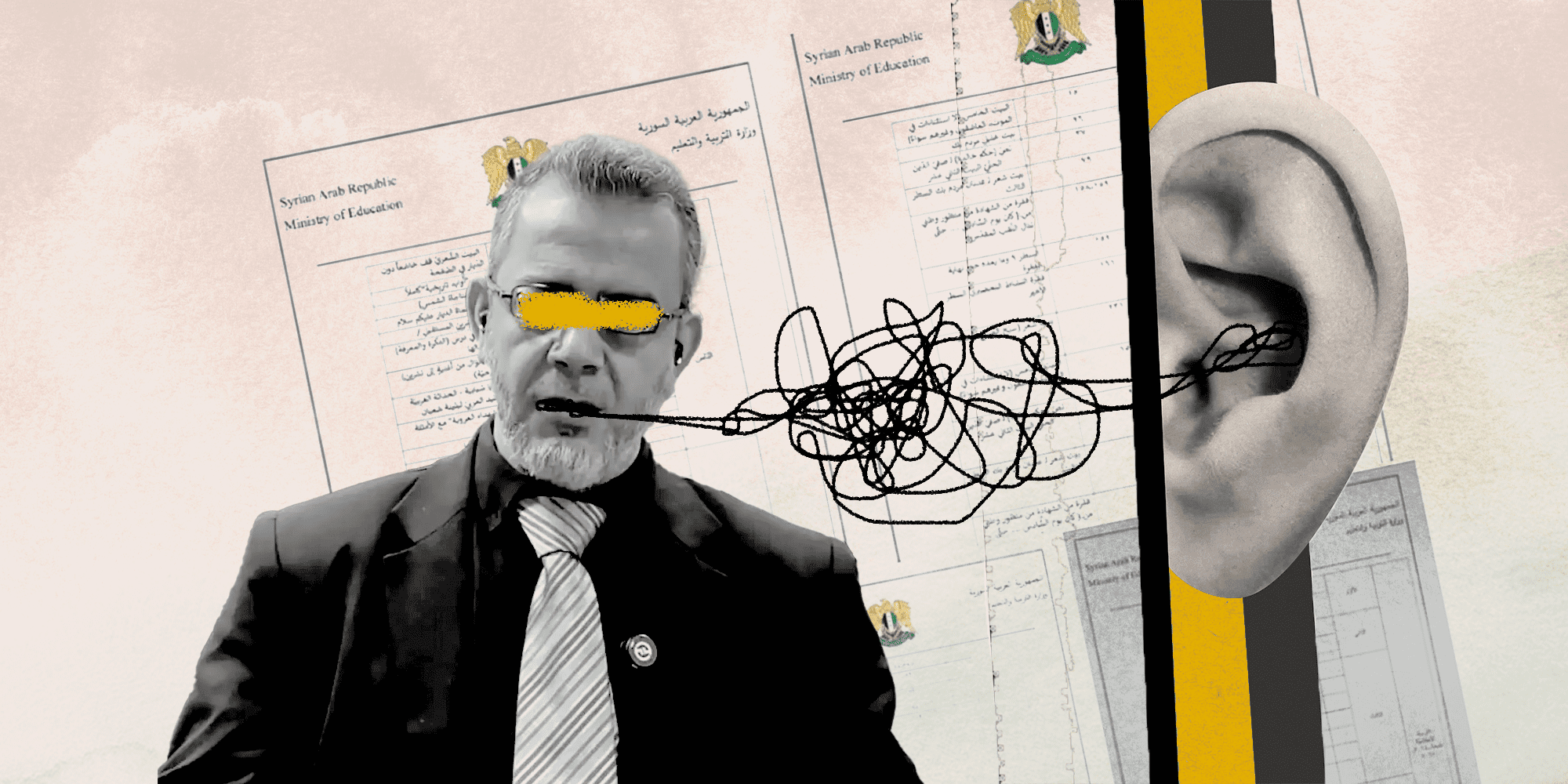Recent statements by Syrian Education Minister Nazir Al-Qadri have reignited debates over the interim government’s direction in shaping the country’s educational curriculum. Critics argue that the government, led by Ahmed Al-Sharaa, is imposing its Islamic ideology on Syrian society under the guise of educational reform.
Qadri initially denied substantial changes to the curriculum, claiming modifications were limited to Islamic education. However, in a subsequent interview with Al Arabiya, he confirmed the removal of scientific theories, such as evolution, citing religious grounds. His comments also revealed the exclusion of certain historical images and statues, which he dismissed as inconsequential, sparking further public concern.
Controversy After Aisha al-Dibs Statements on Role of Syrian Women
The minister defended these changes as part of a broader effort to align education with the revolution’s principles, though he avoided specifying whether these principles represent all Syrians. Critics argue this approach narrows the scope of knowledge and undermines freedom of thought by prioritizing religious over scientific or cultural perspectives.
Freedom and Knowledge Under Threat
Qadri’s justification for removing content reflects a limited understanding of freedom, reducing it to individual behavior while neglecting the broader rights to information and diverse perspectives. Critics warn that such omissions restrict intellectual development and enforce ideological conformity.
The minister’s decision to replace terms like “Ottoman occupation” with “Ottoman conquest” has also drawn backlash, as it appears to relativize historical injustices and overlook the oppressive legacy of Ottoman rule in Syria, including economic exploitation, cultural suppression, and mass executions.
Furthermore, the removal of the term “law” in favor of “Sharia” raises concerns about its implications for human rights and the rule of law. Observers note that some interpretations of Sharia may conflict with international human rights standards, particularly regarding women’s rights and minority protections.
Government Transparency Under Scrutiny
Despite al-Qadri’s assurances of minor adjustments, critics allege the government has been inconsistent and deceptive in its communications. The reforms have sparked widespread unease, with many perceiving them as a step toward greater ideological rigidity rather than an effort to unite the country’s diverse communities.
This controversy highlights broader issues within the interim government, including a tendency to impose a narrow worldview and disregard public input, raising questions about its commitment to fostering a pluralistic, inclusive, and free Syrian society.
This article was translated and edited by The Syrian Observer. The Syrian Observer has not verified the content of this story. Responsibility for the information and views set out in this article lies entirely with the author.


